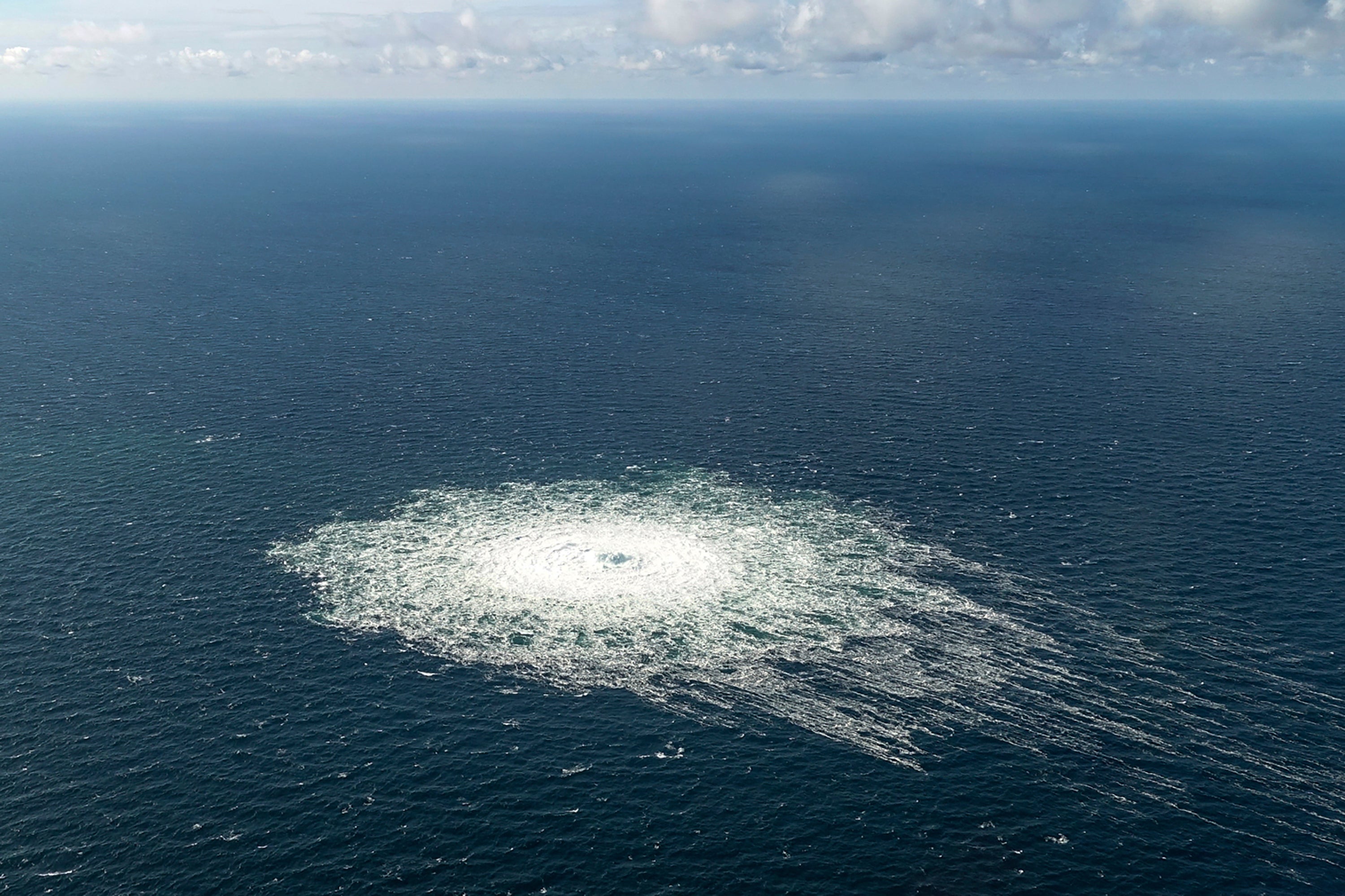Ukraine war to slash European gas consumption ‘almost 50 per cent by 2050’
Energy security forcing Europe to improve efficiency and build renewables, analysis finds

Vladimir Putin’s invasion of Ukraine is slashing European countries’ gas use but will ultimately speed the transition to renewables, a new report claims.
Projections of European gas use by the middle of the century have tumbled from 310 billion cubic metres (bcm) per year predicted one year ago, to 170 bcm now.
This represents a fall in demand by 2050 of 45.2 per cent, according to the report by Norwegian consultancy group DNV.

"Compared to last year’s forecast, DNV sees the continent consuming almost half the amount of natural gas in 2050. Gas will meet just 10 per cent of Europe’s energy demand in 2050 compared with 25 per cent today," they said in a statement.
The invasion of Ukraine is already speeding major reductions in European gas consumption, which in turn have impacted less distant forecasts.
By 2030 the continent’s gas demands are now expected to be almost 26 per cent lower than in DNV’s pre-invasion forecast made one year ago.
The ultimate effect of the invasion is an acceleration of the continent’s energy transition, away from fossil fuels.
"Energy security is forcing Europe to double down on increasing the efficiency in the system and increasing the production of renewables," Sverre Alvik, the director of DNV’s Energy Transition Outlook, told Reuters.
But the organisation noted that while fossil fuel use would be cut in Europe as a result, the global march towards decarbonisation would be largely unaltered by the impacts of the war.

“The turbulence in the energy market does not dramatically alter the decarbonization pathway towards midcentury,” said Remi Eriksen, the chief executive of DNV.
“The strongest engine of the global energy transition is the rapidly reducing costs of solar and wind energy, which will outweigh the present short-term shocks to the energy system.”
The energy forecast also indicates that clean energy sources could rise above 50 per cent of the global energy mix for the first time by 2050.
"This is mainly because of the growing and greening of electricity production," the organisation said.
Electricity production is on course to "more than double and its share will grow from 19 per cent to 36 per cent of the global energy mix over the next 30 years", indicating a significant further move away from other forms of energy such as gas.
Solar power and wind "are already the cheapest forms of electricity in most locations and by 2050 they will grow 20-fold and 10-fold respectively and will dominate electricity production with 38 per cent and 31 per cent shares, respectively," the forecast said.
Spending on renewables is also expected to double over the next ten years to more than $1.3 trillion (£1,2 trillion) per year, and grid expenditure is likely to exceed $1.0 trillion per year in 2030.
Meanwhile, there is also evidence of a surge in nulcear power due to energy security concerns, resulting in a "modest uptick, growing by 13 per cent from today’s levels to 2050".
But overall, nuclear’s share in the energy mix will collapse, DNV said, from making up 10 per cent of the global energy mix today to just 5 per cent by 2050.
Join our commenting forum
Join thought-provoking conversations, follow other Independent readers and see their replies
Comments


Bookmark popover
Removed from bookmarks